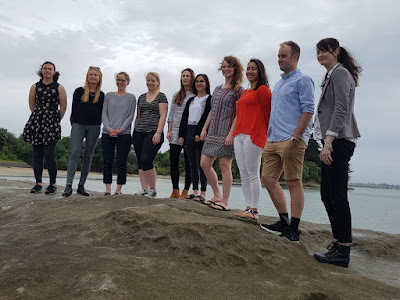
Term 1 of year 2, completed for our hard working MDTA teachers, who have contributed their talents and skills to provide rich learning experiences for their learners. It is great to see the way they have become part of the Manaiakalani staff in their schools and participated wholeheartedly in the life of their schools. They have had their challenges and ups and downs but they have kept the 'main thing the main thing' - the learning of their children. Congratulations team another term completed - mostly unscathed. Look forward to more wonderful teaching next term. Enjoy a break and chipping away at your Dissertation. Nga mihi nui.